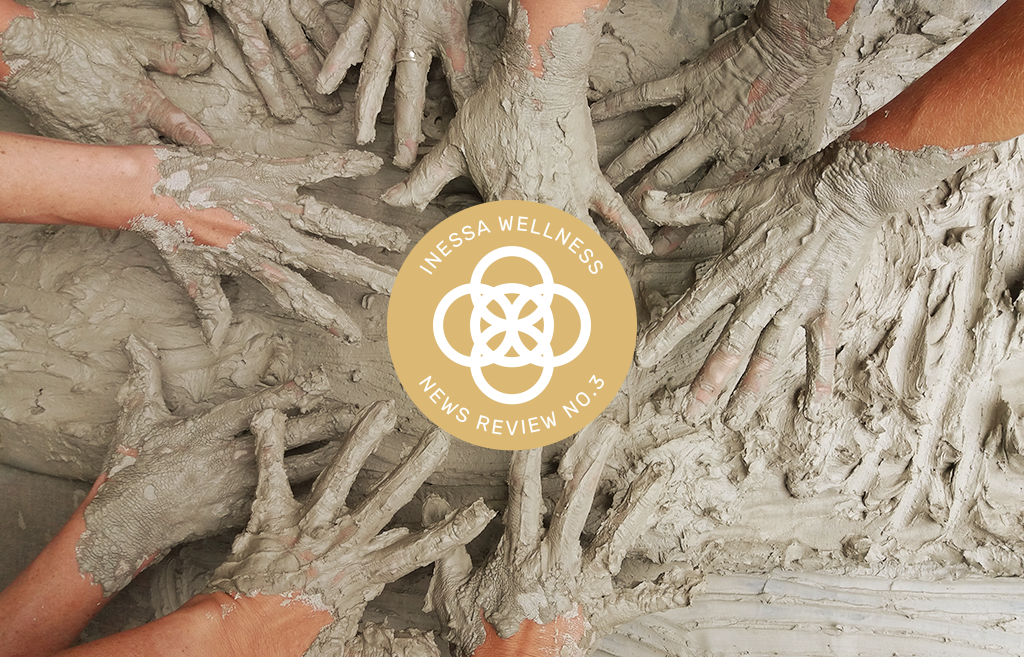Inessa News Review No.3

This week our guest contributor, renowned nutrition writer Shona Wilkinson shares articles that she’s read recently that may be of interest. From the study that shows pregnant women to be operating at the peak of human endurance to personalised nutrition, radioactive Brazil nuts making headlines and a new report indicating that being too clean might not be as bad for us as thought, we hope you enjoy reading this selection of articles and Shona’s comments.

The two groups that reach the peak of human endurance? Extreme athletes and pregnant women.
We know that what the human body goes through during pregnancy is incredible but now we know even more about the powers of pregnancy! Scientists have worked out that the average person can burn approximately 4,000 calories before depleting their energy stores. Extreme athletes may reach this by doing a marathon for example, but expectant mothers often hit this range due to the fact that a nine-month pregnancy will push the body to its limits in a similar way. This means that a pregnant woman may be burning calories at a rate that the body can’t keep up with. This doesn’t mean that we condone the saying “eating for two” but certainly shows the importance of eating a nutrient dense diet during pregnancy.
Eat more avocado! What I learned from the genetics study that will change how we eat
This is an incredibly interesting article and well worth a read to see how the future may look in terms of helping our diet and health. Scientists are working on a way to predict how an individual will react to certain foods and therefore be able to adjust their diet to their individual needs. Tests have shown that there is a huge range of responses to the same foods. In fact, the type of advice you find on a nutrition label about the macronutrient breakdown can account for only 40% of how an individual might respond to meals! This means that offering generic dietary advice may not be effective. The hope is that we will soon be able to have totally personalised dietary advice designed for us from blood or stool tests which analyse our response to foods. It is helpful that genetics isn’t the dominant factor in shaping our food responses and that we can modify these responses by changing our diet and consequently our gut microbiome. This can help us control our weight, sleep patterns, mood, energy levels etc. on a totally personalised level and totally take the guess work out of our nutrition. Exciting developments!
Scientists are collecting poop from elite athletes to try to put their endurance into a pill
New research has shown that a specific form of gut bacteria called Veillonella, is found at higher amounts in elite athletes than people who do no exercise. Scientists found that Veillonella metabolised lactic acid during exercise and converted it into a short chain fatty acid. The body then used that acid to improve exercise capacity. It is thought that with more research, this bacteria could be extracted and put into probiotic supplements to help improve the performance of people who currently do not exercise. Although this is great research, it does show the potential danger of taking things in isolation. If increasing our exercise performance was as easy as this, it would be great, but our bodies are much more complex!
Brazil nuts are RADIOACTIVE: How dangerous is the radiation in Brazil nuts?
The amount of radiation present in Brazil nuts was featured in Channel 4s recent Food Unwrapped programme. Brazil nuts were mentioned specifically because the Brazil tree has roots which stretch in expansive networks. The roots sometimes take in some naturally occurring radioactive material (NORM) in the soil where they gather nutrients. This is an example of a total non-story which could cause concern by the dramatic headline. The opinion is that you would have to eat 25,000 Brazil nuts to experience any health effects from the radiation! Our thoughts – carry on having the occasional snack of Brazil nuts. They are energy dense, highly nutritious, and one of the most concentrated dietary sources of the mineral selenium.
Too much cleanliness not bad for health, report on hygiene says
The Royal Society for Public Health has stated that the hygiene hypotheses that allergies are caused by too much cleanliness is being misinterpreted. It seems that some people are taking the message that exposing children to bacteria helps their immune system a little too far. The RSPH is calling for a more targeted approach to hygiene i.e. washing the floor constantly isn’t as important as cleaning food preparation surfaces and dishcloths. We believe that children will be children and it is impossible and unnecessary to keep them clean all the time – let them enjoy playing in mud for example! Just make sure that they wash their hands before eating and after going to the toilet.



 Tara
Tara









